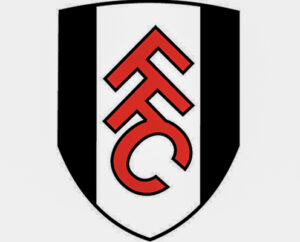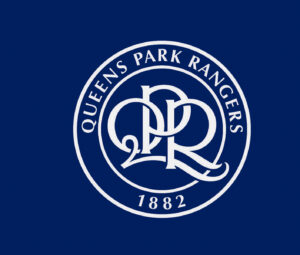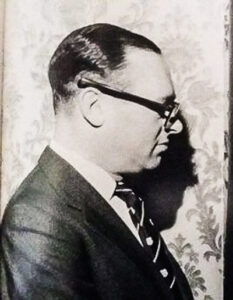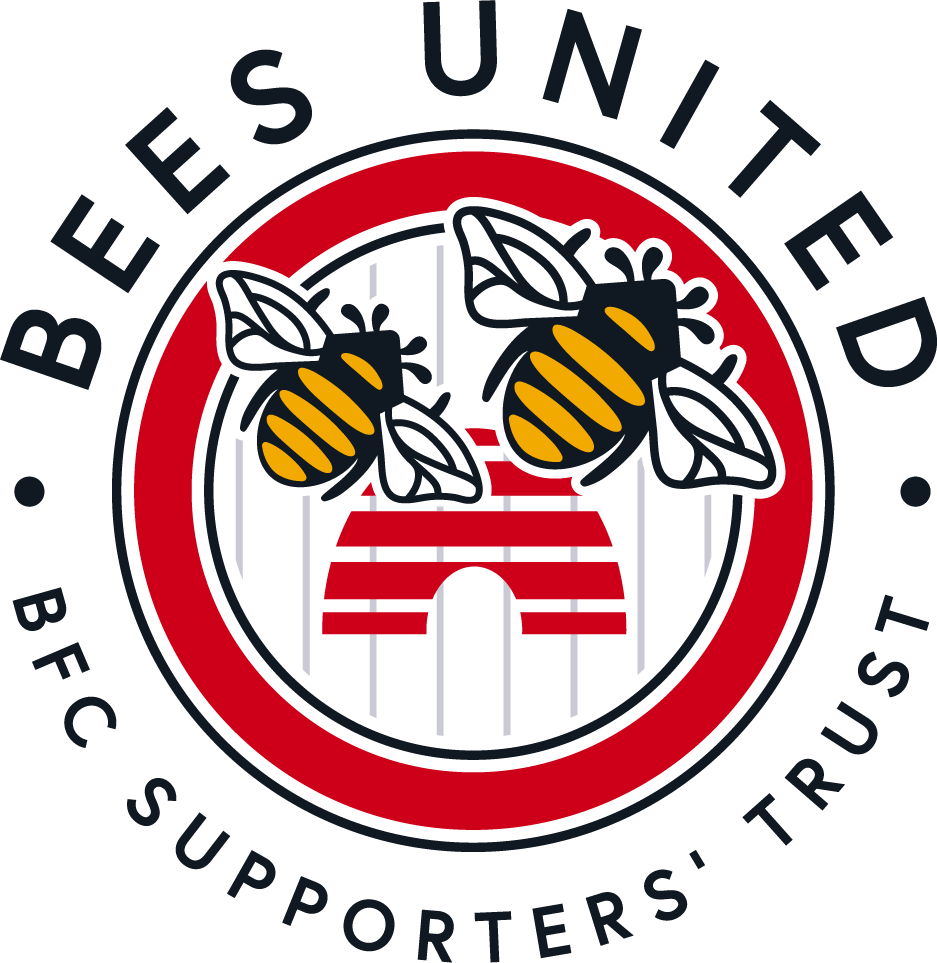We are all still feeling the warm glow of success after convincingly beating local rivals Fulham at the Gtech earlier this month – and for those of you who like statistics it is the eighth time we have beaten Fulham in the 15 games we have played against them since we returned to the Championship in 2014.
Fulham fans might well gloat over the fact that they won “the one that really counts” at Wembley in 2020 but as any Bees supporter worth his salt recognises, they really did us a favour as we were so much stronger and better prepared to cope with the Premier League when we went up the following season – waving a fond farewell to Fulham as we did so following their relegation! Revenge is a dish best served cold!
For those readers who are new to Brentford and have taken an interest owing to the club’s recent rise to their current exalted status, I thought that I would give you a quick overview on their rivals.
Given that it was 74 years since the Bees last graced the top flight, it is fair to say that we go well beneath the radar and are ignored, or at best, barely considered with anything other than patronising disdain and contempt, by fans of London’s top teams. That being said the Bees and the mighty Arsenal crossed paths 10 times during Brentford’s last sojourn in the First Division from 1935-1947, with the underdogs coming out on top on no less than five occasions and we all remember what happened in the first game of last season and also at The Emirates in February. Perhaps it was only our relegation in 1947 that prevented a keen rivalry from developing but they certainly take us seriously now, as do Chelsea given our recent performances against them.

Matches against Fulham are always eagerly awaited and anticipated, and celebrations go on long into the night and joy is unconfined when we get the upper hand over them, as has mostly been the case since our paths crossed again in the Championship in 2015. Fulham supporters are generally pretty patronising towards us considering Brentford to be beneath consideration as a true rival. They see Chelsea as their main rival not wanting to accept that Chelsea regard them pretty much as dismissively and disdainfully as Fulham regard us!
We played Fulham regularly throughout the 80s and 90s in the third tier when they were on their uppers, and a keen rivalry ensued until, in 1997, fortified by the Al-Fayed millions, they commenced their rise far above and beyond our stratosphere leaving us trailing in their wake and a little bit jealous of their good fortune and meteoric rise. Now I suspect that Fulham fans are surprised and deeply disappointed that we find ourselves playing at the same level again and, as far as they are concerned, it is rather beneath them to be forced to sully their hands and share a pitch against a team and club that they think so little of.
Should we both remain at the top level – do I hear a quick refrain of “Bees Up – Fulham Down” at this juncture? – then the rivalry will grow even more intense over the coming years.
There was a time in the mid-70s when matches between ourselves and Watford got a bit tasty with a real edge to them, but we did not really play each other often enough for a real rivalry to develop.
That being said there are many, many Brentford supporters, in particular those of a slightly older vintage, who look upon the Fulham games as a mere taster for the main course – the clashes against QPR, which are currently on hold – and long may that situation continue with us in our exalted position in the Premier League whilst they wallow in the Football League – hopefully well below even where they sit now.

Why is that the case and how did the rivalry develop? The first and most obvious reason is the proximity of both clubs to each other. The Gtech Stadium is a mere four and a half miles away from Loftus Road, as the crow flies. Back in the day, families in Acton, Ealing and Chiswick would grow up either as Bees or Rangers fans and there was a good-natured rivalry, with some supporters attending the home matches of both teams at a time when it was less common to travel in large numbers to away games.
As the Bees fell from grace after the war and stabilised in Division Two, before dropping to the third tier in 1954, the paths of the two teams crossed on a regular basis throughout the 50s until, indeed, the mid 60s. Honours were fairly even and the derby matches at Griffin Park would attract massive crowds of up to 18 thousand as the two teams competed for local bragging rights. Transfers between the clubs were not uncommon, but there was much disquiet when The Terrible Twins, George Francis and Jim Towers, two legendary goal scorers, were scandalously offloaded to QPR in a blatant cost cutting move in 1961, at a time when the Bees were desperately shedding overhead, given that they were staring relegation to the bottom division in the face.
It just didn’t seem right to see two such Brentford stalwarts wearing blue and white hoops after such long, devoted and successful careers in a red and white shirt. There was also a swop of wingers in which we sent the veteran George McLeod to Shepherd’s Bush and received the enigmatic Mark Lazarus in return.
Initially we seemed to have got by far the better part of the bargain. The Kosher Garrincha was an effervescent ball of fire who rampaged down the right wing and celebrated his goals with his own individual lap of honour and then by shaking hands with members of the crowd. He became an instant hero with the Brentford fans, but apparently fell out with the club after a petty dispute over a bonus payment that he felt entitled to. As a man of principle, and also not one to argue with, given his membership of a famous East London boxing family, he returned in high dudgeon to Loftus Road, where he helped inspire Rangers to a League Cup victory and two promotions.
The ill-feeling and antipathy were raised to a fever pitch when, early in 1967, at a time when Brentford were languishing in Division Four, and an effervescent Rodney Marsh inspired QPR team was scoring one hundred and three goals on its way to winning the Division Three Championship and League Cup double, news broke totally out of the blue that plans were afoot for QPR to take over Brentford and move to Griffin Park, with the Bees disappearing into oblivion. Dennis Signy was General Manager at Brentford before later joining QPR and he was a close bystander to the entire shenanigans. He was interviewed many years later for the Vital QPR website, which I would like to thank for reproducing extracts from his interview, where he reminisced about the incredible happenings of that time:
It was a chance remark I made to QPR Chairman Jim Gregory that sparked off the soccer sensation of 1967. Billy Gray was my team manager at Brentford – having turned down an offer from Alec Stock to join him with Rangers – and he and I were standing in Ellerslie Road waiting for my wife to arrive for a game against Carlisle United, when we saw Jim.
The previous Saturday Bernard Joy, the famous ex-centre half who wrote so authoritatively over the years for the Evening Standard, had produced a feature on the old theme of ground sharing and had linked Brentford and QPR as logical clubs to tie up.
Jim asked: ‘How many do you think we’ll get tonight?’
I told him: ‘I don’t know – about eighteen thousand. If you were playing at Griffin Park you’d get thirty thousand.”
From that casual remark we progressed to a discussion on Joy’s ground-sharing theme and, when Jim Gregory said that he might be interested in pursuing this further I said I would mention it to my chairman, Jack Dunnett, Brentford’s MP chairman.

I did – and that started the train of events that led to the eventual take-over bid. The two chairmen went into the appeals of ground-sharing but moved on to discuss the possibility of Rangers buying the Brentford ground whose capacity at the time was thirty-eight thousand.
Various ideas were thrashed around by the two wealthy chairman, including Brentford using Griffin Park on alternate weeks as tenants of Rangers.
The discussions evolved into this: – Rangers were to buy Griffin Park for two hundred and twenty thousand pounds and were to sell Loftus Road to the council for three hundred and ten thousand pounds. The £90,000 surplus was intended to be used to improve Griffin Park. I was to be in publicity and fund-raising projects.
What was not known even when the story broke in the newspapers and on radio and television was that the two clubs were UNDER CONTRACT. After the breakdown of the merger talks Jim Gregory had proposed to Jack Dunnett: ‘We’ll buy you out, shares, ground, the players, the lot’.
The deal was announced with Alec Stock to be overall manager and Billy Gray and Bill Dodgin the coaches.
The Daily Mail headlined: “Fans call it a sell-out”. The Daily Mirror: “Goodbye, Brentford.”
The next crowd at Griffin Park was a best-of-season ten and a half thousand and the fans left us in no doubt what they thought of the idea. “Who done it? Dunnett dunnit” was the poster I remember.
To cut it short, it never went through and I resigned some weeks later and Billy Gray followed me out of Griffin Park when Dunnett handed over to new chairman Ron Blindell.
Would it have been such a bad thing? I recall Alec Stock’s words: “This would be a great thing for us. If agreement is reached it will mean that we have a first-class ground for what is already a first-class team”. Jim Gregory said: “Economically it was a good proposition for Rangers”.
That is the whole point – it was a wonderful deal for QPR, and one that would have brought about the end of Brentford FC.
Now does everybody begin to understand why there is still such antipathy felt by so many Brentford fans towards our neighbours from Shepherd’s Bush, who were actively plotting to kill us and put us out of business?
What is far worse is that the whole appalling idea was welcomed by our own conniving Chairman, Jack Dunnett, who was looking for a way out of the club after he became the Member of Parliament for Nottingham Central after the 1964 general election. His extravagant expenditure on players over the previous few years had failed to pay off with the anticipated reward of promotion to the top two divisions.
I interviewed Jack Dunnett several years ago, who although aged ninety-one, was spry and fit with a handshake like a vice, and here are his recollections of what happened after the news was made public:
I did consider the views of the fans and I said that I would hold some public meetings. I’d seen enough of football supporters to know that it would be seen as a very unusual move but it had a lot of economic benefits.
I did have some misgivings so I called a public meeting and around a thousand people turned up. I’d already announced what it was about and I’d made it clear what we were considering. At the meeting, the fans wouldn’t have it and in fact it got so bad that I had to tell Denis Piggott to call the police and twelve policemen came to the ground to rescue me. I really did feel threatened.
I went onto the pitch with a microphone but I wasn’t really able to get my message across. It was very difficult. With hindsight, I might have suggested that the supporters should have selected a small group of representatives to come and speak with me. I remember Peter Pond-Jones, he was a difficult man. He just didn’t even want to consider the idea.
The reaction of the fans did surprise me somewhat because here I was, in good faith, trying to do something which would give the club a future. I think I was right too – how many times since 1967 have Queens Park Rangers not been in the top divisions? Within ten years Jim was in the First Division and finished second, they were in Europe and did fantastically well. If the amalgamation had gone through, Brentford would have been swept up in that.
I didn’t really care about whether QPR would have taken up more of the new club than Brentford – we’d have still been playing at Griffin Park. I wouldn’t have been Chairman of the new club as that would have been Jim Gregory. I’d have been a director. My objective was to secure a future for Brentford Football Club but without me having to run up and down between Nottingham and London.
I don’t think we could have sold the idea to the fans in a different sort of way. I spoke to some supporters after tempers had cooled down and it was apparent that they just didn’t want to be associated with their nearest rivals. Eventually, I could understand that but the main thing for me was to be able to progress through the divisions, to get to the First Division.
The fans seemed to want to rather stay where they were, at the bottom of the Fourth Division, than amalgamate with our rivals and get into the First Division, which I couldn’t understand at the time and still don’t understand. When we started discussing it, it looked to be a good deal to me.
I know that football fans are passionate about their club but to me, doing well means seeing my club go up the leagues and if it isn’t ever going to happen, then what’s the point? In those days, with a slice of luck and if you were well managed, a small club could go right up to the First Division. I proved that with Notts County.
I don’t think I would have benefitted financially. I didn’t care whether I got my investment back or not. I hadn’t paid money that I couldn’t afford and my business was doing well at the time.
Anyway, I was all set to carry on with things continuing as they were and then out of the blue I got a telephone call from Ron Blindell who had been chairman at Plymouth Argyle. He asked if he could see me and when I asked why, he said that he was interested in buying Brentford. He said he thought he could do better with Brentford than he’d done with Plymouth although I’m not sure how he came to that conclusion.
I told him that it would take a good bit of money to move the club on and that he’d also have to buy me out but he said he could find the money. I’ll never forget that we were having a cup of tea or coffee and I told him the figure we were talking about and he dropped his little gold pencil in surprise because the sum was much larger than he’d realised.
But he agreed and it was duly announced and he took over weeks later. As soon as the Brentford fans had made it clear they were against the amalgamation, the deal was dead as far as I was concerned. I didn’t try to push it further. Jim Gregory understood the position too. It had been a great idea though and well-planned apart from agreeing the name for the club but I wouldn’t have gone through with it without Brentford being mentioned in the name.
There is so much that I could wrote about my feelings regarding Jack Dunnett’s words, and how they clearly demonstrate his total lack of understanding about how supporters feel and their passion for their club, and their determination for it to retain its individual identity. We wanted a Brentford team wearing red and white stripes to be playing at Griffin Park – not some bastard child amalgam.
I will simply let his comments speak for themselves.
On Thursday the 23rd of February 1967, Jack Dunnett resigned as Chairman and a new board, headed by Ron Blindell, assumed control of the club, with Blindell’s personal financial commitment amounting to £145,000.
Brentford FC had been saved, not without a massive fight and the efforts of so many unsung heroes amongst our supporters who were determined to ensure their club’s survival. Austerity was the rule for the next few years, as a huge debt had to be repaid, and we were forced to operate with a skeleton playing squad.
After 1965/66, when Brentford hammered QPR by six goals to one on the first day of a season that saw the Bees relegated – it’s Brentford innit – our paths did not cross again on the field until the early part of the current century when we played each other for three seasons. QPR were on the upwards slope and established themselves as a top division team, we hovered in the nether regions, simply trying to stay alive. Hopefully you can now understand our antipathy towards them.
Occasionally we would sign some of their castoffs and rejects. In return we sold them our shining star in Andy Sinton, thus sabotaging our late season Playoff push in 1989. We had a young Les Ferdinand on loan, who was a mere shadow of the player he eventually became, and other names such as Mark Hill and Mark Fleming will hardly be fondly remembered by Bees fans.
In 2002 we came so close to promotion but fell just short, not helped by dropping two vital points at Loftus Road in the last but one game of a momentous season. Who can ever forget Mark McCammon’s late header bouncing down and then over the crossbar from almost underneath it?
The final nail in the coffin of our relationship was hammered in by Martin Rowlands, for so long a crowd favourite at Griffin Park with his dynamic midfield play. His last couple of seasons were dogged by injury, and his performances suffered. He eventually left for QPR on a Bosman free transfer, and when his new team narrowly defeated a severely weakened Brentford team by a goal to nil after a tough encounter at Loftus Road, he marked the result by goading and taunting the long-suffering Brentford fans, by parading in front of them, and kissing the Rangers badge on his shirt. This went down just as well as you would expect, inciting a brawl between the two teams, and he has never been forgiven for his actions.
Our promotion to the Championship in 2014 and QPR’s relegation from the EPL a year later saw the rivalry resumed and the depth of feeling between supporters of both teams remained as vitriolic as ever. The two teams met 12 times over the next six Championship seasons with the Bees having by far the upper hand, winning all six home games, including their first victory over the old enemy for over 50 years, and eight out of the 12 games in all, as well as hammering a weakened QPR team 4-1 in an EFL Cup tie in 2017.
As far as Brentford fans are concerned, there is nothing sweeter than a victory over the old enemy. The players too invariably raise their game as they are made well aware by the indomitable and indestructible Peter Gilham of just how much the game means to every supporter. Beating QPR means everything to us all and is cause for wild celebration – and as far as we are concerned we are more than happy to remain “Just a Bus Stop In Hounslow” as we are disparagingly described by QPR supporters.
